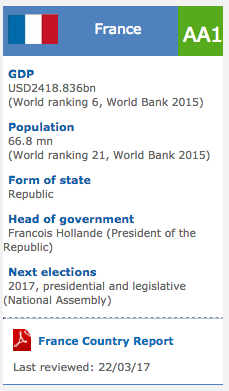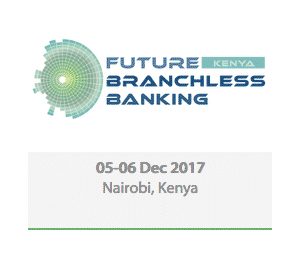Qatar: Qatar’s financial services sector performed strongly in 2016
2017/04/16

Stability and consolidation were Qatar’s watchwords in 2016, as the government continued to make long-term investments in national infrastructure at a time of restricted economic increase in the region.
Marked improvements
In its October 2016 “World Economic Outlook” statement, the IMF estimate that Qatar’s GDP increase for the year would come in at 2.6%, down from 3.7% in 2015, as high national spending continued in a wider context of lower energy prices.
Looking ahead, however, the government’s strong policy direction and leadership look set to pay dividends, with the IMF anticipating real GDP expansion of 3.4% in 2017, the highest rate in the GCC.
Significant public spending will continue in 2017, as the government seeks to ensure a number of major infrastructure projects are completed on time.
The 2017 budget, announced in December by the Ministry of Finance, allocates QR93.2bn ($25.6bn) for major projects, maintaining spending in key areas such as health, education and transport.
According to the minister of finance, Ali Shareef Al Emadi, this would include QR46.1bn ($12.7bn) on new projects to be signed in the coming year, split between infrastructure and transportation programmes worth QR25bn ($6.9bn), projects related to FIFA World Cup 2022 facilities valued at QR8.5bn ($2.3bn), health and education schemes of QR5.8bn ($1.6bn), inclunding QR6.8bn ($1.9bn) of projects in other sectors.
“An increase in the pace of construction activities on various projects will lead to higher allocation for major projects during the coming three fiscal years,” Al Emadi told local media in mid-December.
Total government spending is budgeted to reach QR198.4bn ($55.5bn) for 2017.
This investment strategy is supporting an increasingly diversified economy, with non-oil increase figures reaching 7.8% in 2015 and 5.8% in the initial half of 2016, well above the country’s in general GDP increase recorded for the year.
Maintaining spending, however, will result in a budget deficit of QR28.3bn ($7.8bn), down 39.1% on the budgeted deficit for 2016. Given Qatar’s recent history of high oil revenues, this would be the country’s second budget deficit in 15 years.
Better worker protection
Ongoing national initiatives include easing regulations for Qatar’s largely migrant workforce, something that has become a point of contention in recent years. In mid-December, the government announced that it had lifted the controversial kafala (sponsorship) labour legislation.
Under the kafala system, migrant labourers were allowed to leave Qatar only with permission from their employers, and workers who left a job at the end of the arrangement were required to wait at least two years before returning to the country for employment by an extra company.
Kafala has presently been restored by a new system, which the minister of labour, Essa bin Saad Al Naimi, called “a modernised, arrangement-based system that safeguards workers’ rights and increases job security.”
As a result, foreign workers in the country no longer need sponsorship to change jobs or leave the country. Employers who confiscate passports, blocking the rights of employees from leaving the country, will be fined QR25,000 ($6800), up from QR10,000 ($2700) under the previous system.
The new law as well provides a grievance committee for cases in which sponsors refuse to grant exit visas.
Strong year for Islamic banking
Qatar’s financial services sector performed strongly in 2016, with Islamic banking in particular recording high increase. Sharia-compliant banking grew by 7.2% in the initial half of 2016 while the conventional side of the sector increased by 6.5%, with ratings agency Fitch attributing the increase figures to higher retail and real estate financing.
Part the industry’s strongest performers was local sharia-compliant investment bank Qinvest, which in November announced a revenue increase of 18% year-on-year in the initial nine months of 2016.
However, Fitch expects full-year figures for 2016 to show Islamic banking increase slowing in the second half of 2016, citing reduced hydrocarbons reserves and high government spending.
Elsewhere in banking, following the US Federal Reserve’s December announcement that it was raising its federal funds rate’s target range to 0.5-0.75%, the Central Bank of Qatar (QCB) increased interest rates by 0.25%. This means that the overnight lending rate was raised from 4.5% to 4.75% and the deposit rate went from 0.75% to 1%, as of the middle of December.
The Fed’s rate hike and QCB following suit were both expected. In a recent statement, Fitch Group research agency BMI had estimate that Qatar’s 2017 increase meant it would be in a position to withstand the effects of the hike.
- Related Articles

Climate change laws around the world
2017/05/14 There has been a 20-fold increase in the number of global climate change laws since 1997, according to the most comprehensive database of relevant policy and legislation. The database, produced by the Grantham Research Institute on Climate Change and the Environment and the Sabin Center on Climate Change Law, includes more than 1,200 relevant policies across 164 countries, which account for 95% of global greenhouse gas emissions.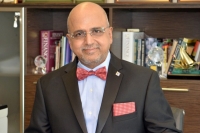
Doha Bank CSR underpins a pillar of Qatari development
2016/12/25 Qatar needs to speak up and share its achievements with the rest of the world, states Dr Raghavan Seetharaman, CEO of one of its leading financial institutions, Doha Bank. Speaking to The Worldfolio, he looks at the country’s strengths, ambitions and expanding international links, inclunding the significant impact Doha Bank continues to have on the country’s development, particularly though its green innovations and SME support.Qatar maintained a steady rate of expansion throughout 2014,
2015/03/31 Despite falling oil prices, the economy in Qatar maintained a steady rate of expansion throughout 2014, with targets of even additional robust increase this year, fuelled by the non-hydrocarbon sector.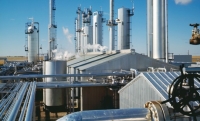
Shell drops $6.5bn Al Karaana
2015/01/16 Royal Dutch Shell has scrapped plans for a $6.5bn petrochemicals project with Qatar Petroleum, citing “the current economic climate prevailing in the energy industry”, the oil major said on Wednesday. The Al Karaana project, an 80:20 joint venture between Qatar Petroleum and Shell, would have produced 2m tonnes a year of petrochemicals products, largely intended for Asian markets.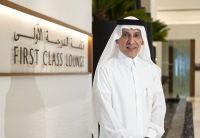
Qatar Airways CEO Akbar Al Baker
2013/01/14 Qatar Airways Group CEO Akbar Al Baker Interviewed By Robeel Haq Formerly this year, a staggering 18.8 million passengers from 100 different nationalities voted for their favourite airline, the results of which were announced at the prestigious Skytrax World Airline Awards. Speculation had been mounting for several months about the potential winner, with Singapore Airlines, Cathay Pacific and Asiana Airlines hot favourites to reclaim the title, having collected the award in 2008, 2009 and 2010, respectively.
- Qatar News
-
- QATAR: Chief of largest Middle East bank: Countries that started rift with Qatar have more to lose
- AFGHANISTAN: UNWTO: International tourism – strongest half-year results since 2010
- QATAR: Blockaded Qatar's economy troubled, but coping
- QATAR: Qatar Airways transit business in jeopardy
- BAHRAIN: Abu Dhabi says Gulf air embargo only applies to Qatar firms
- QATAR: Qatar plans to boost gas production by 30%
- Trending Articles
-
- SOUTH AFRICA: Nigeria and South Africa emerge from recession
- BAHRAIN: Bahrain issues new rules to encourage fintech growth
- UZBEKISTAN: Former deputy PM named Uzbekistan Airways head
- ARUBA: Director of Tourism Turks and Caicos after Irma: Tourism, visitors, hotels current status
- ANGOLA: Angola: Elections / 2017 - Provisional Data Point Out Qualified Majority for MPLA
- WORLD: How fair is our food? Big companies take reins on sourcing schemes



